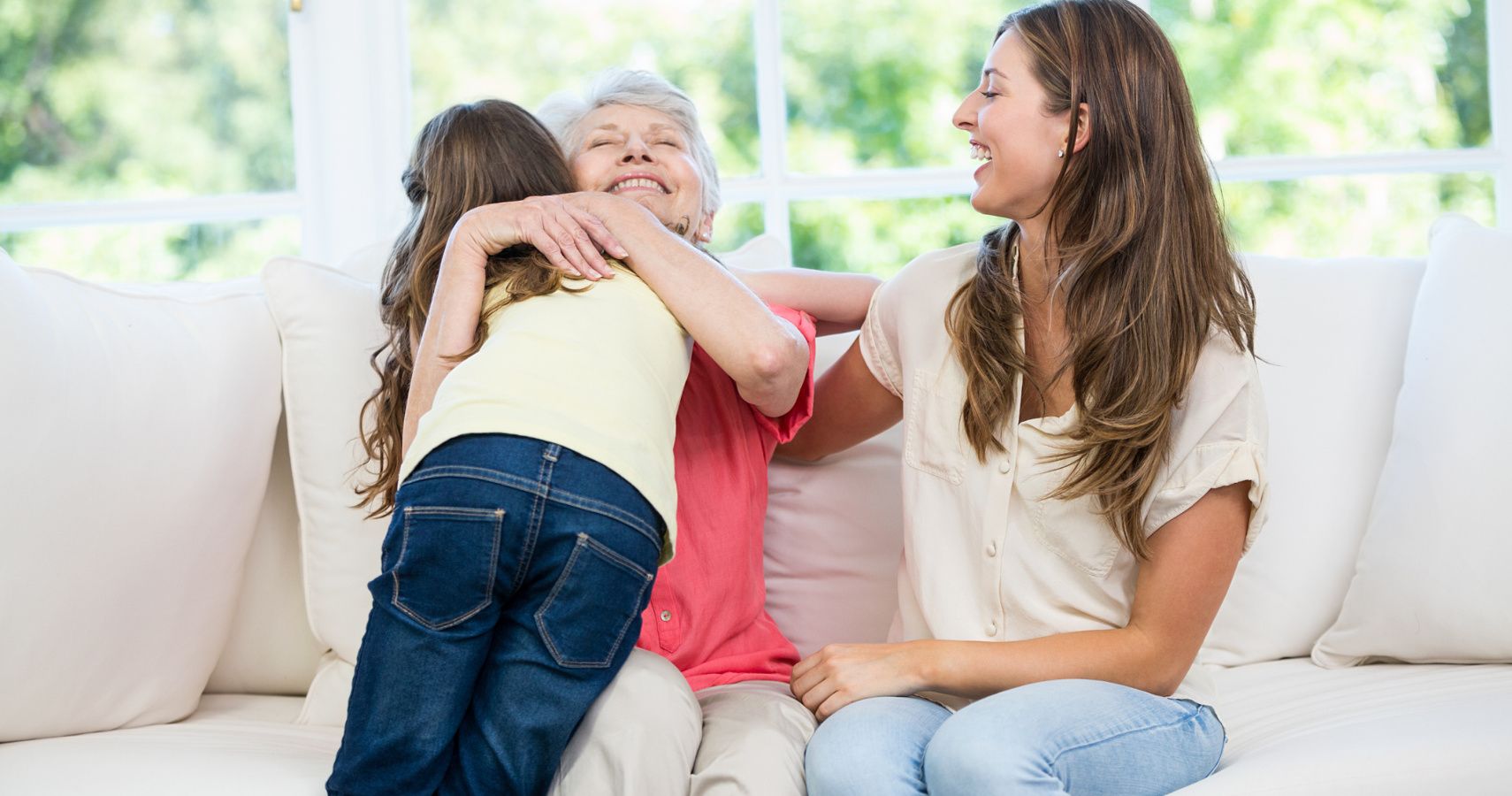It has almost become a ritual for some families. More often than not, parents encourage their children to hug their relatives at family get togethers and holidays, as just a polite and well-meaning thing to do. But now health and behavioral experts are suggesting that parents don’t force their children to hug their relatives if they don’t want to and here’s why.
For many parents, they are more concerned about teaching their children the definition of consent rather than forcing their child to get up close and personal with a relative that they occasionally see or even know to begin with. As much as many family members want to show everyone how much they love and miss them, it’s still an uncomfortable situation that kids are put in, no matter how hard everyone tries to act natural about it.
PREVIOUSLY: Science Says Hugging More Means Happier Kids
According to Scary Mommy, more and more parents would rather teach their children about consent and physical boundaries than what others perceive as simple politeness. As a matter of fact, the biggest lesson that moms and dads can teach their children is that no one can touch them without asking first: and this includes grandma and grandpa, too.
“Physical touch should never be coercive,” Dr. Deborah Gilboa, a parenting expert, told Today. “It is super confusing to send kids the mixed messages of body privacy and body safety and then force them to do something intimate with their bodies.”
So, what should parents do when an out-of-town uncle or aunt wants to give their child a quick hug before Thanksgiving or Christmas dinner? A simple and quick verbal request will do. Many health professionals agree that no kid should have to be forced to give affection, no matter what it is, especially if it’s unwanted. Many children should understand that they don’t owe anyone a hug or a kiss, and this not only applies to family members, but anyone who might be crossing certain boundaries later on in their lives, too.
In addition, you can also let your relatives know that there’s nothing wrong with consent and bodily autonomy and yes, shyness. Rather than an awkward hug, suggest a high-five or a fist bump from grandpa or that one aunt from the Northeast who always insists on giving kisses to everyone in the room, and even to you, too.
At the end of the day, it’s not about feeling comfortable or uncomfortable about physical interaction. Instead, it’s about teaching children that they are given both the choice and control over their bodies.
READ NEXT: Why You Should Never Make Your Child Give Hugs And Kisses

